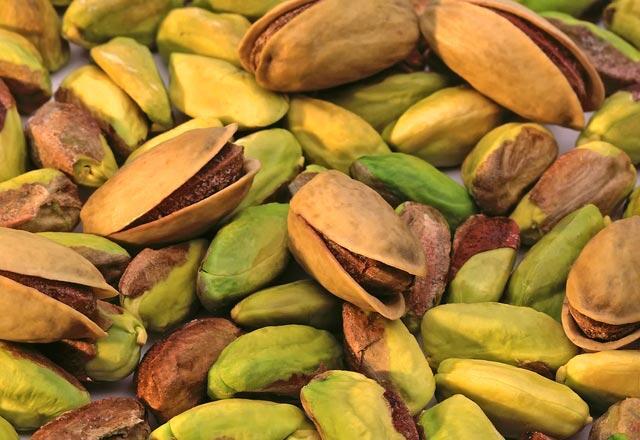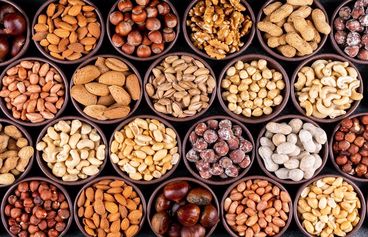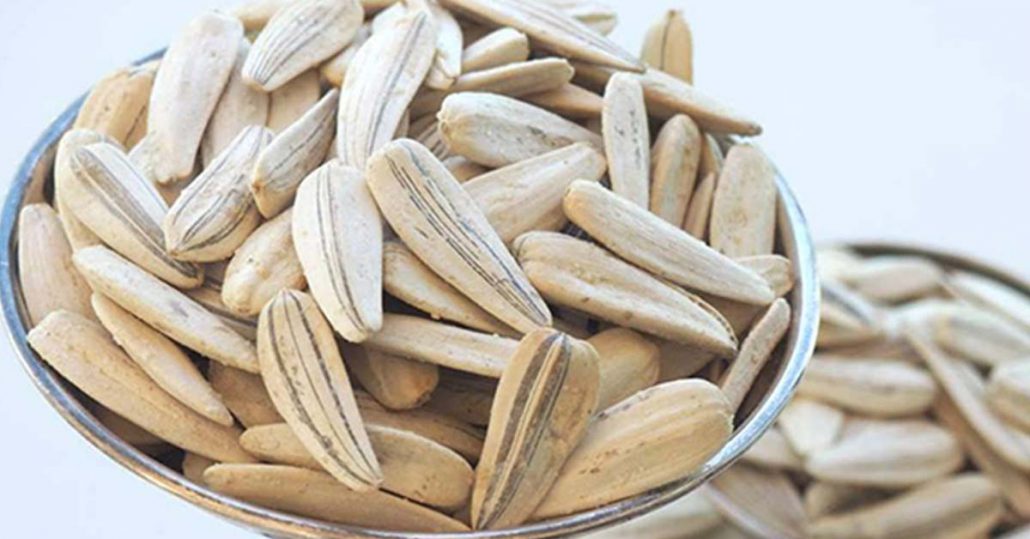Nuts are foods that most of us love to consume, but perhaps we do not know how beneficial they are. The essential nuts we love to eat are protecting cardiovascular health and preventing diabetes and cancer.
Nuts, which generally have high energy, are also very rich in unsaturated fatty acids that protect cardiovascular health. In addition to healthy fats, they also contain protein, fiber, many vitamins (vitamin E, folic acid, niacin), and minerals (magnesium, potassium, and copper). They also contain polyphenols and phytosterols, which are protective against cancer.
Studies in recent years show that all nuts are protective against many diseases such as obesity, cancer, and diabetes when consumed in sufficient quantities.
Nuts prevent atherosclerosis, lower cholesterol and contain antioxidants. In addition, consumption of nuts rich in healthy fats, fiber, and protein increases the feeling of satiety, supports appetite control during the day, and prevents excess calorie intake.
The beneficial effects of nuts on health are directly proportional to the frequency of consumption. Although the daily recommended consumption varies from person to person, consuming 30-50 grams every day is protective against many systemic diseases and prevents weight gain.
Sunflower Seeds
Sunflower seeds lower cholesterol and relieve arteriosclerosis. Its fat and protein are of the highest quality. It prevents heart and nerve diseases. It has curative effects on respiratory system disorders. Sunflower seeds also contain B vitamins and magnesium. By relaxing the nervous system and the brain, it allows you to concentrate on your work better and gives a feeling of relaxation.
Pumpkin Seeds
Many prostate medications contain pumpkin seeds. Studies have shown that pumpkin seed oil obtained from pumpkin seeds slows and even prevents prostate enlargement. It also has an effect that significantly reduces the risk of colon cancer.
Peanut
Vitamin B1 is essential for burning blood sugar, protecting heart health and brain functions such as learning. As it protects the body against aging, it also reduces the harmful effects of alcohol and cigarettes. Vitamin B3 increases circulation and opens the mind. It contains calcium mineral which is necessary for blood clotting, muscle strength, and nerve conduction.
Pistachios

Moreover, pistachios is a fibrous food. It has been determined that fibrous foods provide a more balanced rise in blood sugar and are helpful in preventing constipation and some types of cancer. Pistachios also has been determined that as the amount of pulp taken increases, there is a decrease in the risk of coronary heart disease and related hazards.
10-12 pieces of pistachios eaten per day can meet the daily fat need of the body. 100 g of pistachios can meet 35% of the body’s daily protein, vitamin B1, and phosphorus needs.
Hazelnut
Hazelnut is a rich source of some B group vitamins, which have regulatory functions in carbohydrate, protein, and fat metabolism in the body. Vitamins B1, B2, and especially B6 are abundant in hazelnuts. Vitamins B2 and B6, which are necessary for blood formation and mental health, are of great importance in the nutrition of school children in the developmental age. In this respect, the inclusion of hazelnuts in our schools’ daily nutrition programs is considered a practical and economical solution for the healthy nutrition of our children.
Almond

Almond also contains Thiamin, Riboflavin, Niacin and Vitamin A. When we eat 42 grams of almonds and hazelnuts every day, the risk of heart disease decreases. Furthermore, regulates blood sugar level; reduces the risk of developing cancer. It relieves the tiredness of the body and mind. It eliminates inflammations in the kidney, bladder, and reproductive tract. Headaches relieve liver and kidney pain.
Resources: ONEDIO












